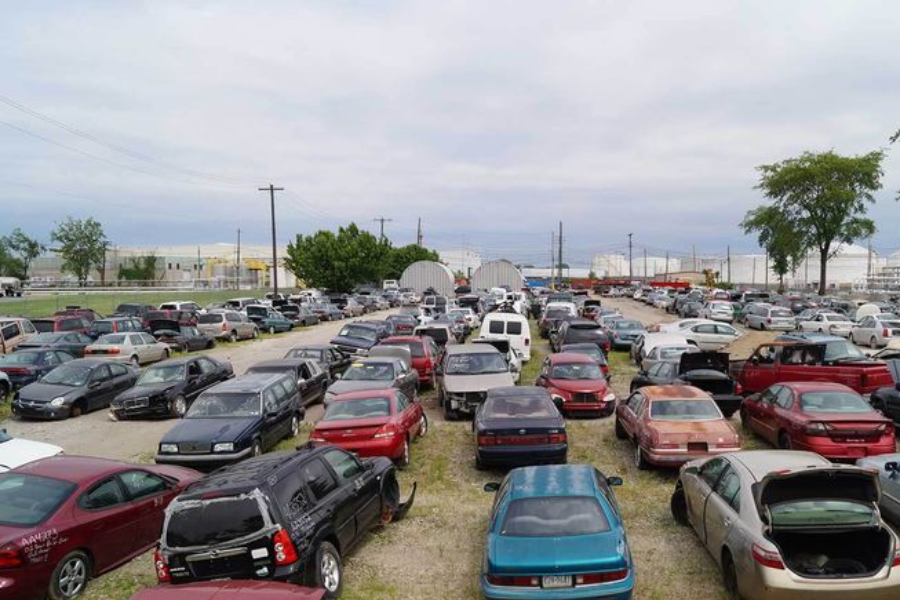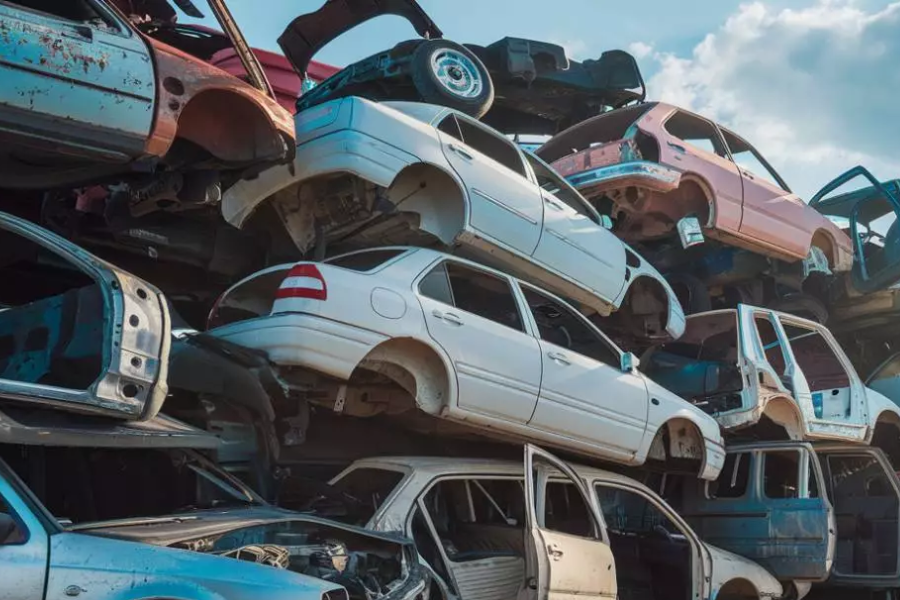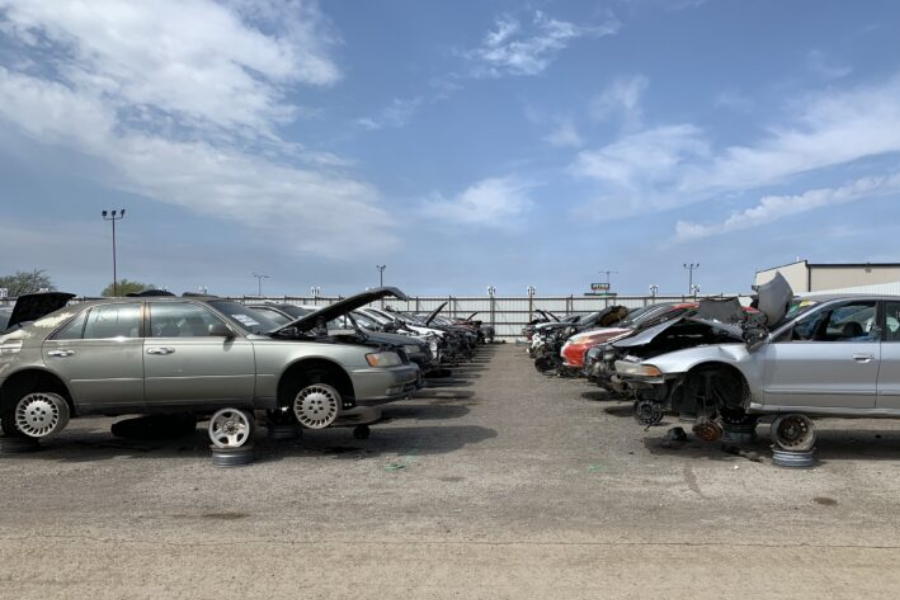Choosing the Best Junkyard Near You: A Comprehensive Guide to Yonke Cerca De Mi
When your car breaks down, you may find yourself in need of spare parts, or perhaps you’re considering selling an old vehicle you no longer need. One of the most valuable resources available to you in these situations is the junkyard. A junkyard, often referred to in Spanish as a “yonke,” can offer a cost-effective, eco-friendly, and reliable solution to your car troubles. However, finding the right junkyard is key to ensuring you get the best parts or value for your vehicle. If you’ve typed “yonke cerca de mí” (junkyard near me) into your search engine, you’re on the right path, but choosing the right facility requires more than just proximity. This guide will explore everything you need to know to find and choose the best junkyard, ensuring a positive experience and helping you save both money and time.
What Exactly Is a Yonke Cerca De Mí? Understanding Junkyards
A “yonke” (junkyard) is a specialized facility dedicated to processing old, wrecked, or unwanted vehicles. These yards serve as a crucial part of the recycling process, handling vehicles that are no longer operational and turning them into valuable resources. Let’s explore in more detail what a junkyard is, how it operates, and the role it plays in recycling and sustainability.
1. The Role of a Junkyard in the Automotive Industry
Junkyards, also known as auto salvage yards or scrap yards, play an essential role in the automotive industry by providing an eco-friendly solution for vehicles that have reached the end of their lifespan. When a car is no longer usable due to damage, age, or mechanical failure, junkyards step in to dismantle the vehicle and recover valuable parts and materials.
- Recycling Vehicle Parts: Many parts in a junked vehicle can still be repurposed. Commonly salvaged components include engines, transmissions, body panels, headlights, mirrors, tires, and batteries. These parts are cleaned, tested, and resold to consumers who need affordable replacements.
- Scrap Metal and Material Recovery: In addition to selling parts, junkyards extract scrap metal, such as steel and aluminum, from cars. These metals are then sent to recycling plants to be melted down and reused, which helps reduce the demand for new raw materials.

2. How Junkyards Operate: A Step-by-Step Breakdown
Junkyards typically follow a standardized process when receiving vehicles and salvaging parts. Understanding this process can help you know what to expect when visiting a junkyard.
- Vehicle Intake: When a car enters a junkyard, it is either driven or towed in. Junkyards may purchase these vehicles from individuals or insurance companies, often offering cash or credit in exchange for the vehicle. Once accepted, the vehicle is logged, and the title is processed.
- Dismantling the Vehicle: After intake, junkyard staff begin the process of dismantling the vehicle. Usable parts are carefully removed and cataloged. Common items like doors, seats, dashboards, and fenders may be stored for resale.
- Fluid Removal and Hazardous Materials: For environmental safety, junkyards remove fluids such as gasoline, oil, brake fluid, and coolant. They also dispose of any hazardous materials in compliance with regulations. This ensures that the yard operates in an eco-friendly and legal manner.
- Sorting for Reuse: Once parts are removed, they are sorted into categories. Some parts are cleaned and tested for resale, while others are sent to recycling facilities. The remaining vehicle shell is usually shredded to break it down into smaller pieces of metal, which can be reused.
3. The Eco-Friendly Nature of Junkyards
Junkyards play a significant role in promoting sustainability and reducing the environmental impact of automotive waste. The process of reusing and recycling parts helps limit the need for new manufacturing, which in turn reduces energy consumption, carbon emissions, and waste.
- Reducing Landfill Waste: Without junkyards, many old vehicles would end up in landfills. By recycling materials from these cars, junkyards significantly reduce the amount of waste sent to landfills, contributing to a cleaner environment.
- Reusing Auto Parts: Used auto parts from junkyards often function just as well as new ones but at a fraction of the cost. These parts help car owners save money and contribute to a circular economy where materials are reused rather than disposed of.
- Energy Savings: Recycling metals and other materials from junked vehicles consumes less energy than producing new materials from raw resources. For example, recycling aluminum requires 95% less energy than producing it from bauxite, which makes junkyards an integral part of energy conservation efforts.
4. The Economic Value of Junkyards
In addition to their environmental impact, junkyards provide a valuable economic service to communities.
- Affordable Auto Parts: Many consumers turn to junkyards for inexpensive auto parts, which helps reduce the overall cost of car repairs and maintenance. This is especially beneficial for individuals with older cars or those who cannot afford new parts from dealerships or manufacturers.
- Job Creation: Junkyards create jobs within the local community. These include roles for staff who manage the yard, dismantle vehicles, clean and test parts, and handle administrative tasks. Some junkyards even specialize in particular vehicle types, offering additional expertise in rare or vintage parts.
- Revenue for Car Owners: Junkyards offer car owners a chance to earn money from old vehicles that are no longer functional. Depending on the car’s condition, some junkyards may provide cash offers, allowing individuals to free up space while getting some value out of a car that otherwise has no use.

5. Legal and Safety Considerations
Junkyards must adhere to a number of legal and safety regulations to ensure they operate responsibly and avoid environmental damage.
- Regulations on Vehicle Disposal: Junkyards are subject to laws regarding the proper disposal of vehicles, which include handling hazardous fluids, materials, and waste. They must comply with local, state, and federal regulations to ensure that their operations are safe and legal.
- Environmental Safeguards: In many areas, junkyards must have permits to operate, which are granted based on their ability to safely manage hazardous materials. These may include requirements for fluid containment systems, proper disposal methods, and pollution control measures.
- Consumer Protection: Junkyards are required to provide accurate descriptions of the parts they sell and offer warranties or guarantees on used items in some cases. This ensures that customers aren’t purchasing damaged or defective components without recourse.
The Process Behind a Junkyard
Junkyards receive vehicles in a variety of conditions, ranging from those involved in accidents to abandoned cars. Once a car enters the yard, it is typically inspected, and parts that can be reused are carefully extracted. Some junkyards allow customers to browse the yard and remove parts themselves, while others offer a full-service approach where employees retrieve the parts. The remaining vehicle is then either dismantled further or sold for scrap.
Key Benefits of a Junkyard
- Cost Savings: Perhaps the most compelling reason to visit a junkyard is the price. Used car parts are usually much more affordable than their new counterparts. This is especially beneficial for those who need replacement parts but can’t afford brand-new components. For example, you might find a used alternator or starter motor at a fraction of the cost of a new one.
- Eco-Friendly Solution: Junkyards play a crucial role in reducing environmental waste. Instead of letting old vehicles sit in landfills, the parts are reused, and materials are recycled. This contributes to a reduction in the need for new manufacturing, which can have a large carbon footprint.
- Hard-to-Find Parts: If you’re restoring a vintage car or need a specific part that’s no longer being manufactured, a junkyard might be your best bet. Many junkyards specialize in older or discontinued parts, making them an invaluable resource for car enthusiasts and collectors.
How Junkyards Contribute to the Community
Beyond just being a place to buy cheap parts, junkyards serve as hubs for community interaction. They offer a space where local mechanics, car enthusiasts, and hobbyists can gather to find parts for their projects. Additionally, they contribute to local economies by providing affordable solutions for auto repairs, promoting sustainability, and even buying old cars for cash.
The Process of Finding a Junkyard Near You
While it may seem simple to search for a “yonke cerca de mí,” there are a few considerations that will help you narrow down your choices and ensure you get the best results. Here’s how you can find the right junkyard in your area.
1. Using Online Search Tools
The first step in your search is to leverage online tools like Google Maps, Yelp, and even social media. A quick search for “yonke cerca de mí” will show you the nearest junkyards. However, not all junkyards are created equal, so it’s important to go beyond just the location.
- Google Maps and Reviews: These platforms provide ratings and reviews from past customers, offering valuable insights into the junkyard’s customer service, quality of parts, and pricing.
- Specialized Websites: Some junkyards list their inventory online, allowing you to check if they have the specific part you need before visiting.
- Social Media: Some junkyards may have a presence on social media platforms, providing updates on their latest inventory or promotional deals.
2. Word-of-Mouth Referrals
In addition to searching online, asking for recommendations from family, friends, or even local mechanics can help you find reputable junkyards. These recommendations are especially valuable if you’re looking for a junkyard that offers quality service or specializes in specific makes or models. Mechanics often know the best junkyards in the area because they source parts from these places regularly.
3. On-Site Inspection
While online reviews and recommendations are helpful, nothing beats seeing the junkyard in person. Visit the junkyard to inspect the facility’s cleanliness, organization, and overall professionalism. A well-maintained junkyard often indicates that the parts available are better cared for, and you’ll likely have a more pleasant experience.
4. Contacting the Junkyard
Before making the trip, it’s a good idea to call ahead and ask a few key questions:
- Do they have the part you need?
- Are they open to the public?
- What are their policies regarding warranties or returns?
Many junkyards are happy to answer these questions, which can help save time and effort when you visit.
Important Factors to Consider When Choosing a Yonke Cerca De Mí
When choosing a junkyard, it’s important to keep several factors in mind to ensure you get the best deal and the right parts.
1. Part Availability
Ensure the junkyard has parts that fit your specific make, model, and year of car. Some junkyards specialize in certain brands or types of vehicles, while others may offer a wide selection of parts for many different models. Larger yards are likely to have more parts, but smaller, specialized ones may offer rarer or more specific items.
2. Pricing and Payment Options
Different junkyards will have different pricing strategies. While used parts are typically cheaper than new parts, prices can still vary widely. Be sure to compare prices at multiple junkyards to ensure you’re getting a fair deal. Additionally, ask about their payment options. Some junkyards may offer cash discounts or allow you to pay with a credit card, while others may prefer cash or check.
3. Warranty and Return Policies
Many junkyards offer some form of warranty on parts, though the terms can vary. For example, some parts may come with a 30-day warranty, while others may have a shorter or longer period. Be sure to ask about the warranty and the return policy for parts. Some junkyards may allow you to return parts if they don’t work or are not what you expected.
4. Customer Service
The level of customer service you receive can greatly affect your experience at a junkyard. Friendly, knowledgeable staff can assist you in finding the right parts and provide useful advice. Poor customer service, on the other hand, can make your visit stressful and time-consuming.
5. Location and Accessibility
Proximity to your home or garage is another important consideration. If the junkyard is far from where you live, you may end up spending more money on transportation. Additionally, some junkyards may be easier to navigate than others, with clear signage and organized parts storage, making your visit much more efficient.
6. Self-Service vs. Full-Service Junkyards
Another important factor is whether the junkyard is self-service or full-service. In a self-service junkyard, you’ll need to bring your own tools and remove the parts yourself. These yards usually charge lower prices but require more time and effort. Full-service junkyards, on the other hand, will retrieve the parts for you, but they often charge higher prices for this added convenience.
Frequently Asked Questions About Junkyards
Q: How do I know if a part is in good condition?
A: Inspect parts for visible damage, rust, or wear. Ask the junkyard staff about the part’s history and if they offer any warranties.
Q: Can I return a part if it doesn’t work?
A: Return policies vary by junkyard. Always ask about their return or exchange policy before purchasing.
Q: Are junkyard parts reliable?
A: Many junkyard parts are functional but may show signs of wear. Inspect them carefully before buying.
Q: Do I need to bring my own tools?
A: Some junkyards are self-service, requiring you to bring your own tools. Others offer full-service, where staff retrieves the parts for you.
Q: Can I sell my old car to a junkyard?
A: Yes, most junkyards buy old, damaged, or non-running cars. You may receive cash or credit toward parts.
Conclusion
Finding the right “yonke cerca de mí” can save you money, time, and frustration, while also benefiting the environment by recycling parts. When you consider factors like part availability, pricing, customer service, and location, you can make an informed decision that will benefit you in the long run. Whether you’re looking for rare parts for your restoration project or simply need a replacement component, a reliable junkyard is an excellent resource for affordable and sustainable auto solutions.
Stay Connected: Express Internal






